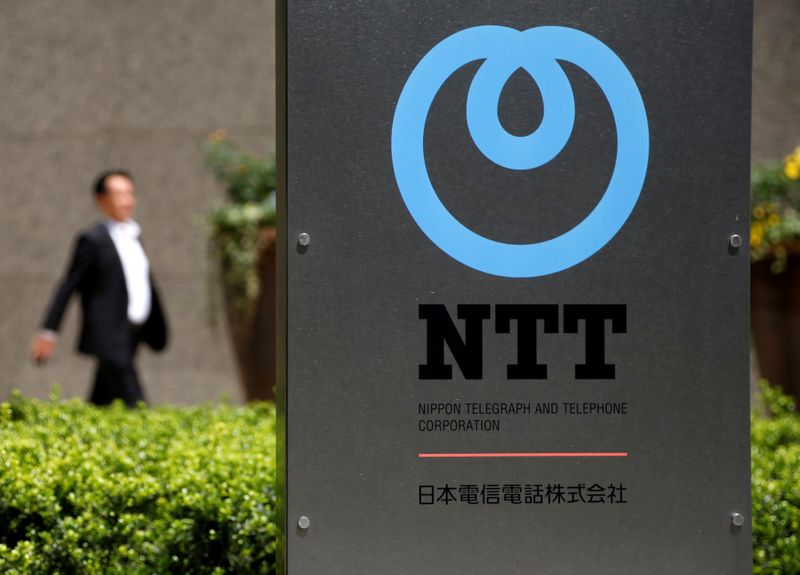
The logo of NTT (Nippon Telegraph and Telephone Corporation) is displayed at a building in Tokyo, Japan May 1, 2018. REUTERS/Issei Kato
September 28, 2020
By Sam Nussey and Makiko Yamazaki
TOKYO (Reuters) – Japanese telecoms group Nippon Telegraph and Telephone <9432.T> said it is looking at taking full control of its wireless carrier business NTT Docomo Inc <9437.T>, in a tender offer that could be worth around 4 trillion yen ($38 billion).
The buyout will be discussed at a board meeting on Tuesday, NTT said in a statement following a Nikkei report. The value of the 34% of NTT Docomo’s shares not owned by NTT is based on a 30% premium to Monday’s closing price.
The move comes as Japan’s new prime minister Yoshihide Suga launches a fresh attempt to push the country’s top three mobile phone carriers into cutting carrier fees. The government is NTT’s biggest shareholder, with a 34% stake.
A deal will have broad implications for the sector, with any cuts in fees expected be followed by NTT’s peers KDDI Corp <9433.T> and SoftBank Corp <9434.T>, hitting profit margins.
NTT Docomo was spun off from Japan’s former state monopoly in 1992 as part of the government’s efforts to drive competition in the sector and listed in 1998.
“Post acquisition, Docomo will no longer be answerable to shareholders. If the government instructs it to cut prices, it will oblige,” Jefferies analyst Atul Goyal wrote in a client note.
The government hopes that lower carrier fees will help stimulate spending in other parts of the economy.
Pressure from Suga comes as carriers are investing in building out next-generation 5G services seen as critical to ensuring Japan’s competitiveness.
The telecoms ministry’s efforts to enhance competition include backing Rakuten Inc’s <4755.T> entry into the sector this year. Its model of offering low-cost plans could come under strain should broader prices fall.
(Reporting by Makiko Yamazaki and Sam Nussey; Editing by Jane Merriman and Richard Pullin)

